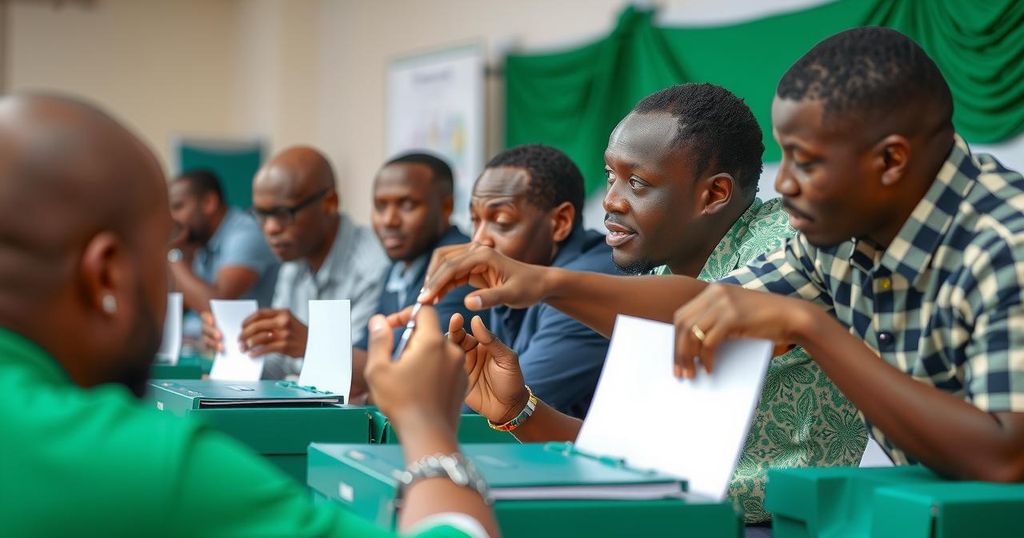Comoros Votes for New Parliament Amid Controversy and Allegations of Authoritarianism

Voters in Comoros are electing a 33-seat parliament after President Azali Assoumani’s contentious re-election last year. Despite opposition allegations of misconduct, the ruling party denies any wrongdoing. Approximately 338,000 people are registered to vote, with results expected by Friday. Assoumani’s opponents suspect he is grooming his son to succeed him, raising concerns over the country’s political future.
Voters in Comoros are going to the polls to select members for the archipelago’s 33-seat parliament, a year following President Azali Assoumani’s controversial re-election, which opposition leaders claim was marred by significant irregularities. The ruling party has refuted these allegations. Polling stations commenced operations early on Sunday, with approximately 338,000 individuals registered to vote. This is the first parliamentary election since January 2020, with nearly 100 candidates approved by the nation’s Supreme Court for participation.
Critics of President Assoumani have accused him of authoritarian governance and suggest that he may aim to position his eldest son, Nour El-Fath, as his successor after his term ends in 2029. Since coming to power via a coup in 1999 and winning three subsequent elections, Assoumani has granted additional powers to his son, tasking him with overseeing all government affairs as of 2024. Some opposition factions, including the Juwa party, led by former President Ahmed Abdallah Sambi—who received a life sentence in 2022—have advocated for a boycott of the elections; however, other parties have dismissed such calls.
As articulated by Hamidou Karihila, a candidate with the opposition Hope of the Comoros party, “The Azali regime is weakened … by participating in these elections we are contributing to further exposing the flaws in its system and accelerating its inevitable fall.” The election results are anticipated to be announced by Friday.
The political context in Comoros has been tumultuous, with President Azali Assoumani in power since 1999, primarily after a coup. His recent re-election faced significant backlash from opposition parties, who accuse his government of authoritarian practices and electoral misconduct. With parliamentary elections now taking place, concerns linger over the legitimacy of the electoral process and the ruling party’s commitment to democratic principles. Assoumani’s decision to entrust his son with increased political authority has elicited further scrutiny and skepticism regarding the future direction of governance in Comoros.
In summary, the parliamentary elections in Comoros reflect a critical moment for the nation’s democracy. As voters head to the polls amidst allegations of past electoral malpractices, the opposition remains divided on whether to participate. The situation underscores ongoing tensions over governance and potential dynastic politics within the Assoumani administration, with results expected soon.
Original Source: www.thesenior.com.au






